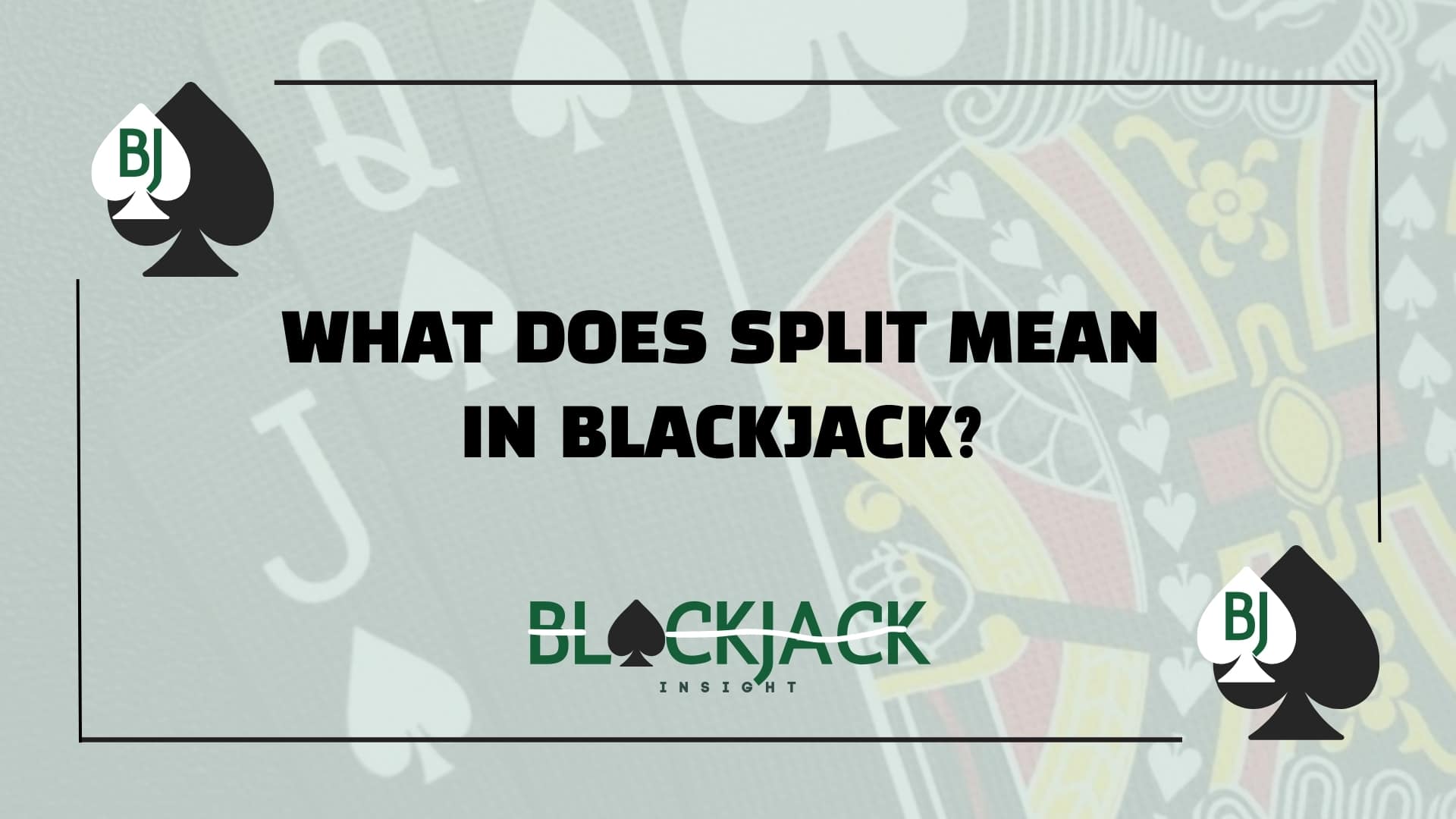What Does Split Mean in Blackjack?
Table Of Content
In blackjack, splitting allows you to turn a pair—two cards of the same rank—into two separate hands by placing an additional bet equal to your original wager. Each hand is then played independently. For example, if you’re dealt two 8s, splitting gives you a better chance of improving both hands rather than playing a hard 16. Strategic splits, like splitting Aces or 8s, can reduce the house edge, while poor splits, like splitting 10s, should be avoided. Always base your decision on both your cards and the dealer’s upcard.
If you’re new to blackjack, it can feel like everyone at the table is speaking in code. Double down, hit, stand, insurance, push… and then there’s split. So, what does split mean in blackjack? If that’s what brought you here, good—you’re asking the right questions. And I’ve got your back.
I’ve been playing blackjack for years, both in smoky Vegas casinos and at kitchen tables with nothing more than poker chips and a deck of cards. I’ve seen rookies lose a small fortune because they didn’t know when to split, and I’ve seen players turn a mediocre hand into a winner with a single, well-timed move. So, let’s break it down in simple, no-fluff language—what splitting actually is, how it works, when it’s smart, and when you should back off.
What Does Split Mean in Blackjack?
In blackjack, a split happens when you’re dealt two cards of the same value—like two 8s or two Kings. Instead of playing them as one hand, you have the option to split them into two separate hands, placing an additional bet equal to your original wager.
Each new hand then gets one extra card, and from there, you play them independently—hit, stand, double, whatever you like (well, unless you’re dealing with aces… more on that soon).
So, what does it mean to split in blackjack? Simply put, you’re doubling your action and, potentially, your winnings—if you play it right.
How to Split: The Mechanics at the Table
If you’ve never actually done a split before, here’s how it typically plays out at a casino or live table:
- You’re dealt a pair, like two 7s.
- You place an extra bet equal to your initial wager.
- The dealer separates your cards into two hands.
- One new card is added to each hand.
- You now play each hand as if it were its own game.
And yes—you can win one and lose the other, or win both, or lose both. It’s all part of the gamble.
A Real-Life Lesson from the Table
I’ll never forget this guy I played next to at a blackjack table in Atlantic City. He got two 8s, and the dealer had a 9 showing. Instead of splitting, he hesitated and stood. The dealer pulled a 10 and hit 19. Had he split, one of his hands could’ve pulled an ace or 2, and he might’ve walked away a winner—or at least not busted with a hard 16.
Moral of the story? Don’t let fear or confusion keep you from using one of the most powerful tools in the game.
The Strategic Impact of Splitting
When you split wisely, you can reduce the house edge and capitalize on the dealer’s weaknesses. Splitting can:
- Turn Bad Hands into Potential Winners: A single 16 (like two 8s) is unfavorable, but splitting it gives you two fresh starts that might both outlast the dealer’s totals.
- Leverage Dealer Weakness: If the dealer’s upcard is a 4, 5, or 6, splitting moderate pairs (like 2s or 3s) can pay off, as the dealer faces a higher chance of busting.
However, splitting also doubles your risk. You’re placing an extra bet that hinges on making each new hand profitable. Over-splitting or splitting without considering the dealer’s card leads to many a busted bankroll, so it’s crucial to remain disciplined.
Common Misconceptions About Splitting
Let’s clear a few things up:
- “Splitting is for pros only.” Nope. If you understand when to use it, it’s a beginner-friendly strategy.
- “More hands mean better odds.” Not always. It’s about playing the right hands the right way.
- “You should always split pairs.” Please don’t. Splitting 10s is the blackjack equivalent of shooting yourself in the foot—twice.
Why Splitting Is Such an Upgrade
Splitting gives you a chance to turn one mediocre hand into two strong ones. It gives you more control, more opportunity, and, let’s be honest, more action. For many of us, that’s part of the fun.
When you understand what split means in blackjack and how to use it wisely, the game opens up. It’s not just about luck anymore; it’s about making smart decisions at the right time.
FAQs
1. Does card counting change the recommended splitting strategy?
Yes. If you’re counting cards, you might adjust your splits based on the remaining composition of the shoe, such as splitting more aggressively when there are numerous high-value cards still in play.
2. Are split hands eligible for insurance if the dealer shows an Ace?
Generally, each split hand can have its own insurance option, but make sure to confirm at your specific table, as some casinos might handle insurance differently on split hands.
3. Can I still surrender after I split a pair?
In most standard Blackjack games, you cannot surrender after splitting. House rules vary, though, so always check if a late surrender option is available post-split.
4. Do side bets like Perfect Pairs get affected by splitting decisions?
Typically, side bets are settled based on your initial dealt cards and are unaffected by subsequent splits. However, certain casino-specific or variant rules may differ, so clarify before playing.
5. Does my seat position at the table affect my splitting decisions?
Seat position generally doesn’t alter the fundamental strategy for splitting. While some players like acting closer or farther from the dealer, it’s the dealer’s upcard and the shoe composition (if counting) that truly guide split decisions.
6. Can you win both hands when you split?
Absolutely. You can win one, both, or lose both—it all depends on how the rest of the cards play out.
7. How many times can you split in blackjack?
That depends on the casino rules. Most allow you to split up to three or four times, giving you a max of four hands. Some casinos are stricter, especially with Aces.



